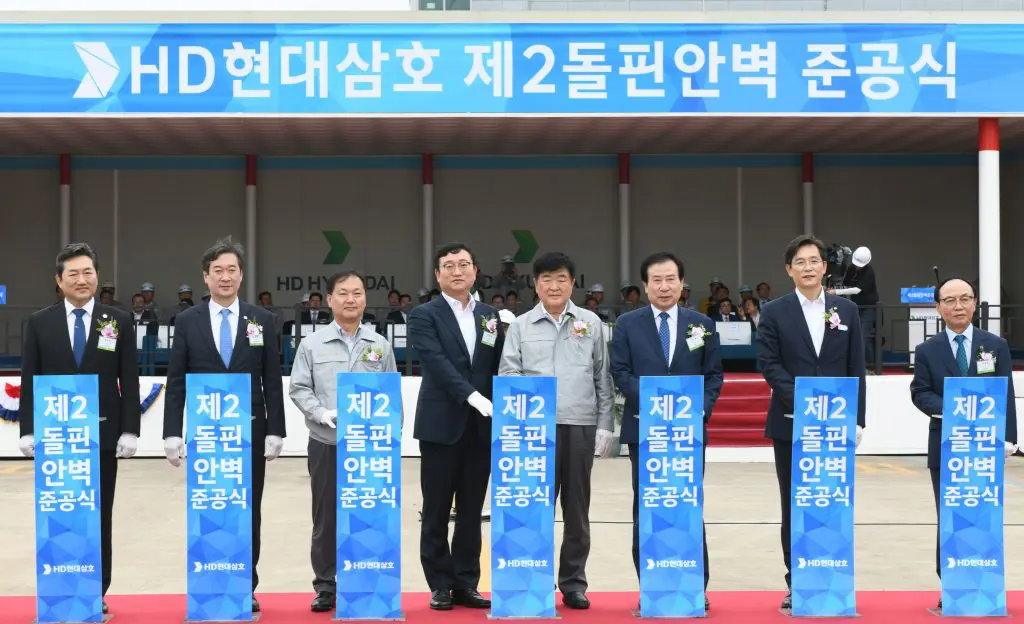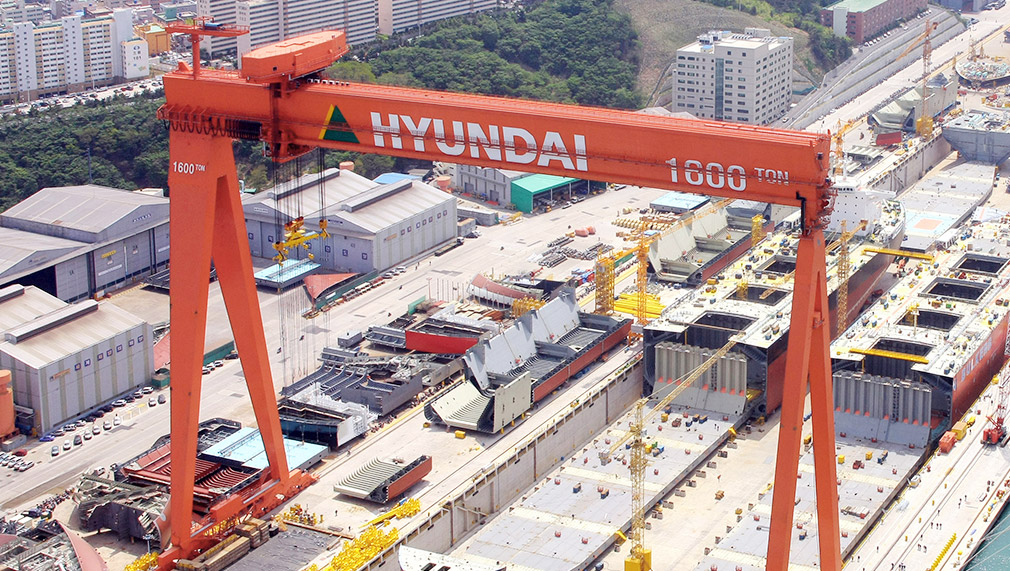South Korean shipbuilder HD Hyundai Samho has expanded its berthing facilities to address the increase in orders for ships, including LNG carriers.
HD Hyundai Samho held on July 10 the completion ceremony for the second dolphin berth, attended by over 100 people, including from its parent HD Hyundai, the shipbuilder said in a statement.
A dolphin berth is a facility where sturdy pillars are installed in the sea to a pathway, allowing ships to berth on both sides, the shipbuilder said.
The newly completed dolphin berth spans 530 meters and is equipped with two large cranes to support shipbuilding operations.
Also, it can accommodate up to four ultra-large vessels, two on each side.
HD Hyundai Samho completed the construction of the second dolphin berth in just one year after its groundbreaking last July, the shipbuilder said.
With this addition, the total length of HD Hyundai Samho’s berths is now 3.6 kilometers, enabling simultaneous berthing for up to 18 vessels.

Increasing orders
HD Hyundai Samho said this investment is aimed at “effectively responding to the increasing orders for eco-friendly ships”.
Generally, “eco-friendly” ships require berthing times up to twice as long as standard ships, depending on the type.
“Through this investment, HD Hyundai Samho has secured berthing facilities on par with industry standards, alleviating process bottlenecks and enhancing its capabilities in building eco-friendly ships,” it said.
Additionally, the company can now reduce the cost burden of leasing nearby ports due to berth shortages.
The working conditions for employees have also “significantly improved, providing a wider and safer workspace,” it said.
In January, Qatari LNG shipping giant Nakilat has placed orders worth about $955 million with HD Hyundai Samho for the construction of two LNG tankers and four LPG carriers.
HD Hyundai Samho also secured in February an order worth about $1.08 billion to build four LNG carriers tied to Evangelos Marinakis-led Capital.
According to data by HD KSOE, HD Hyundai Samho had 46 LNG carriers on order as of the end of June 2024.

